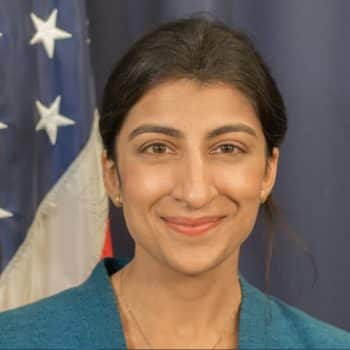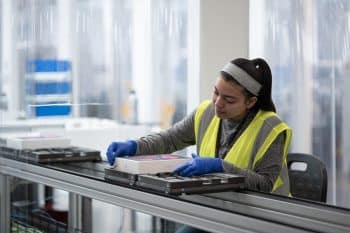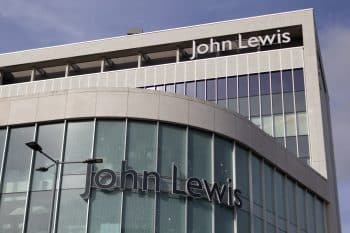Home » Business News » What News From Around The World?
What News From Around The World?
https://www.whatjobs.com/news/business-news/what-news-from-around-the-world-2

By Kris Paterson in Business News, posted August 20, 2021
Texas
Along for the ride were Bezos brother Mark, the world's youngest and oldest astronauts - 18-year old Oliver Daemen, a Dutch student whose father paid an undisclosed sum for the ticket; and 82-year-old Wally Funk, who was given a free ride in the rocket. Funk is a pilot trained to be an astronaut on the privately funded Women in the Space programme in the 1960s but was denied a place on Nasa's space programme because she was a woman. Blue Origin is now open for booking, says CNN. Bezos claims that ticket sales are approaching $100m.
Washington DC
Delta variant threatens US recovery: Around 60% of US adults are now fully vaccinated, but the Delta variant of the Covid-19 vaccine is sweeping through the country and "posing a downside risk to the economy," says Capital Economics. Consumption growth is "faltering," with inflation reducing people's purchasing power. Growth is "slowing more sharply" than anticipated. President Biden is pinning his hopes on his "Build Back Better" plan, reports CNBC. Biden said on Monday that the plan would fund decades of economic growth and increase the workforce. But the resurgence in Covid-19 cases has led many forecasters to start "to rethink their extremely rosy projections", says The Washington Post.
With supply chains disrupted, orders for many items are "delayed until early next year at the soonest". On the plus side, credit for months" and there is "unlikely to be any supply-chain relief agencies are "upgrading hundreds of billions of dollars of US corporate debt": they think the economic rebound has made corporate debt piles more "manageable."
Los Gatos, California
Has Netflix peaked? Streaming giant Netflix disappointed the markets this week. It said it had signed up 1.5 million more people worldwide to its platform in the second quarter but lost 430,000 viewers in the US and Canada. It expects to add another 3.5 million viewers worldwide between July and September, compared with the 5.9 million analysts anticipated. Investors wonder if we have reached "peak Netflix," says Mark Crouch of investment platform eToro.
The group set the bar so high early in the pandemic" that it can hardly help undershooting expectations now. In the first half of 2020, it gained 25 million new members globally, a 100% jump on the same period in 2019. Now that economies are reopening, there is plenty to do besides binge-watch a show. At the same time, in the past 18 months, competition has emerged, with Disney, Apple, WarnerMedia, and BritBox (a joint venture between the BBC and IIV) launching streaming platforms.
Lima
Peru elects Marxist president: Pedro Castillo, the rural schoolteacher who "promised to restructure Peru's economy to favor the poor", has finally been confirmed as president, says Simeon Tegel in The Washington Post. This follows a six-week delay caused by a series of "last-ditch legal challenges" by his right-wing opponent Keiko Fujimori, who alleged electoral fraud. The official result gave Castillo 50.13% against Fujimori's 49.87%. Nevertheless, it is unclear whether Castillo will fulfill his promises (he pledged to redraft the constitution and raise taxes on mining firms) or even last the full five-year term. Although his Marxist-Leninist party is now the largest in Congress, with 37 out of 130 seats, he faces a conservative majority led by the 24 Fujimori's Popular Force".
Various economic measures he has proposed may be deemed "confiscatory" and therefore
unconstitutional by the courts. Castillo also has Covid-19 to contend with, says The Guardian. The pandemic has "crushed" the economy and plunged more than a third of the population into poverty, erasing the "gains of a decade" in the world's second-biggest copper producer.
London
In June, the equivalent figure was 26%. The upshot? GDP growth in the third quarter is likely to reach just 1.3%, compared with Pantheon's previous estimate of 1.8%, but the economy should have regained its pre-pandemic size at the end of this year. However, the brisk rebound so far meant that public borrowing in June was lower than expected at £22.8bn, although that is still the second-highest June figure on record. The overall debt pile is now worth 99.7% of GDP, the highest ratio since 1961.
Berlin
Almost 170 people have died since heavy rainfall in North Rhine- Westphalia and Rhineland-Palatinate caused rivers to overflow. The federal government has pledged €300Om in short-term emergency aid, along with billions more later to repair the damaged houses, roads, and bridges. ln 2002, the deft handling of floods in east Germany helped chancellor Gerhard
Schröder wins re-election; the effect this time is uncertain, as "none of this year's candidates has Schröder's political nous." So far, the CDU's lead over the Greens has fallen by 2% to 9%.
Pretoria
South Africa's riots unnerve investors: In South Africa over the past fortnight, at least 215 people have died, while more than 2,500 have been arrested and thousands of businesses torched in the worst unrest since the end of apartheid, says Andrew Meldrum of the Associated Press. The violence was sparked after former president Jacob Zuma began a 15-month prison sentence for contempt to court, with supporters in his home province of KwaZulu-Natal creating burning roadblocks. South Africa was already in recession, and the violence has caused an estimated $68Om in damage and could scare off investors, causing the economy to contract further.
The violence is a sign of how far the social contract has "eroded", says Kenan Malik in The Observer. A combination of hunger, poverty, desperation, "gangsters seeking to profit from mayhem, and political activists settling scores" allowed the protests to morph into something "more menacing." Apartheid may have gone, but 27 years later, "so little" has changed for the black population, 64% of whom live in poverty compared to just 1% of whites. Three out of four young people are unemployed. Corruption, along with policies that largely benefit the wealthy and well-connected, has contrived to create an unequal society in the world.
Canberra
2,500 Australia returns to lockdown: "For the past year, Australia has worst been coasting along almost blissfully detached from the global pandemic," says Frances Mao on the BBC. Its border closures and a strict quarantine policy for the few visitors allowed in kept Covid-19 at bay; only 915 Australians have died of the disease so far. However, it seems the highly infectious Delta variant has now managed to sneak through the border. And the country has been extremely slow to vaccinate its population over the past few months. Around 14% of Australians are vaccinated, the lowest rate in the OECD club of developed countries. As a result, strict lockdowns are being reinstated to minimise the danger.
Half the Australian population, around 13 million people in South Australia, Victoria and New South Wales, were locked down this week. It is not clear when the two biggest cities, Melbourne and Sydney, will reopen. More than 1,500 people have been infected in Sydney, the largest city, and 110 new cases emerged despite the fourth week of lockdown. Australia's GDP has already regained its pre-pandemic level, but this year's bounce is losing momentum.
Kris Paterson is a writer for WhatJobs.com










